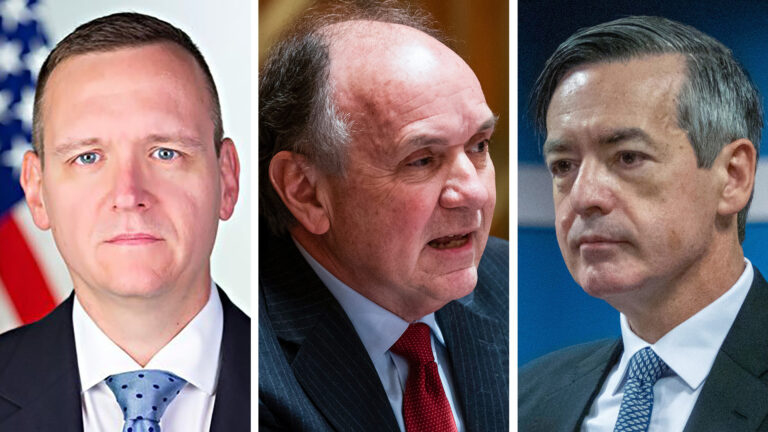Frederica Freyberg:
The 2600 rank and file police officers and firefighters who protect Milwaukee don’t necessarily want to have to live there. At least their union leaders don’t want them to be required to reside within city limits.
Mike Crivello:
Just the ability to make the choice. What’s best for your family?
Frederica Freyberg:
Milwaukee Police Association president Mike Crivello says this issue goes way back.
Mike Crivello:
The concern of residency has been a concern of our membership for probably 50 or more years.
Frederica Freyberg:
In fact, the residency rule for city employees, including police and fire, went into effect in 1938, originally designed to promote an on-time workforce. Such rules now help prevent out-migration to the suburbs, and loss of city population and tax base. Union contract negotiators say the Residency Rule has been a nonstarter for the city.
Mike Crivello:
We’ve brought it to the table and we’ve been told we’re not interested in talking to you about it and in fact, I personally– And I can reflect on the exact place that I sat with the city negotiator when he told me, if you want it, go get it legislated.
Frederica Freyberg:
Well, now it appears they have.
Scott Walker:
Bottom line, I want more freedom and prosperity for all.
Frederica Freyberg:
Because Governor Scott Walker included eliminating the municipal residency rule in his proposed state budget. Notwithstanding the union’s take on bargaining table talks, Milwaukee mayor Tom Barrett says, if the residency rule is so important to union members, they should have to give something up for it at contract time.
Tom Barrett:
Here the only two groups in Milwaukee that have collective bargaining rights don’t want to go to the table. Why don’t they want to go to the table? Because they think they can get it for nothing by going to the governor and through the legislature.
Frederica Freyberg:
Crivello says his members have given up already, made health care and salary concessions to the city just to help out. But beyond the bargaining squabble, Barrett says eliminating the Residency Rule will cost the city.
Tom Barrett:
In the last five years, this city has lost $5 billion in assessed value. We went from $30 billion to $25 billion as a result of the foreclosure crisis. So that was like getting a height hook to the face. What we’ve seen in other major cities is up to half of the police officers and firefighters moving out over a ten-year period. So we've just been hit with a right hook. This would be a left hook.
Frederica Freyberg:
Because most police and firefighters live in tidy, middle class neighborhoods just inside the city limits bordering the suburbs, their home values and property taxes help maintain city services like their own. But Barrett says values would go down if half of them sold their homes and left.
Tom Barrett:
So you’ve got a situation now where I hear from police and firefighters, well, the taxes are too high. That makes my head explode, because I’m thinking, wait a minute, you don’t pay towards your pension, and you want to move out of the city and not pay towards your pension through property taxes. Who do you think is paying for your pension?
Frederica Freyberg:
Crivello says the mayor’s concerns are unfounded.
Mike Crivello:
And I guarantee you, our cops will serve no matter where they live. The majority of my career I lived on the far southeast, or the southwest side of the city, and I walked the beats in the inner city, and I guarantee you when I walked in those beats, that was my neighborhood and it mattered to me. The people who lived in those neighborhoods mattered to me.
Tom Barrett:
I have tremendous respect for the men and women who work for the Milwaukee police department and the Milwaukee fire department. They put their lives on the line every day, and that’s why we’ve treated them well. At the same time, I have a city to run. I have to look not just for this year, but project into the future as to what this city’s going to look like both from a residential standpoint and from a fiscal standpoint.
Search Episodes
News Stories from PBS Wisconsin

Donate to sign up. Activate and sign in to Passport. It's that easy to help PBS Wisconsin serve your community through media that educates, inspires, and entertains.
Make your membership gift today
Only for new users: Activate Passport using your code or email address
Already a member?
Look up my account
Need some help? Go to FAQ or visit PBS Passport Help
Need help accessing PBS Wisconsin anywhere?

Online Access | Platform & Device Access | Cable or Satellite Access | Over-The-Air Access
Visit Access Guide
Need help accessing PBS Wisconsin anywhere?

Visit Our
Live TV Access Guide
Online AccessPlatform & Device Access
Cable or Satellite Access
Over-The-Air Access
Visit Access Guide
 Passport
Passport


















Follow Us